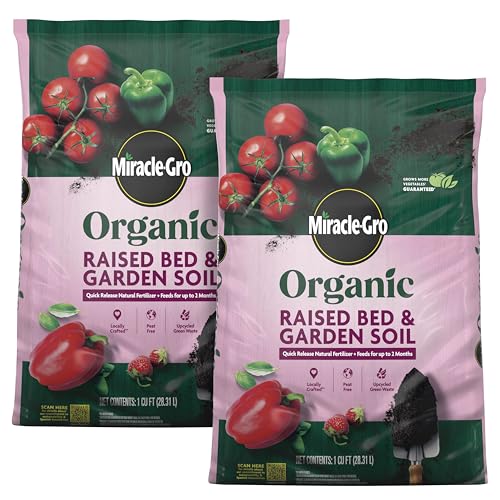How to regrow leeks in 6 simple steps to get a second harvest from scraps
Hold onto that root end as it can be used to grow another leek
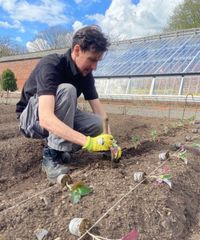
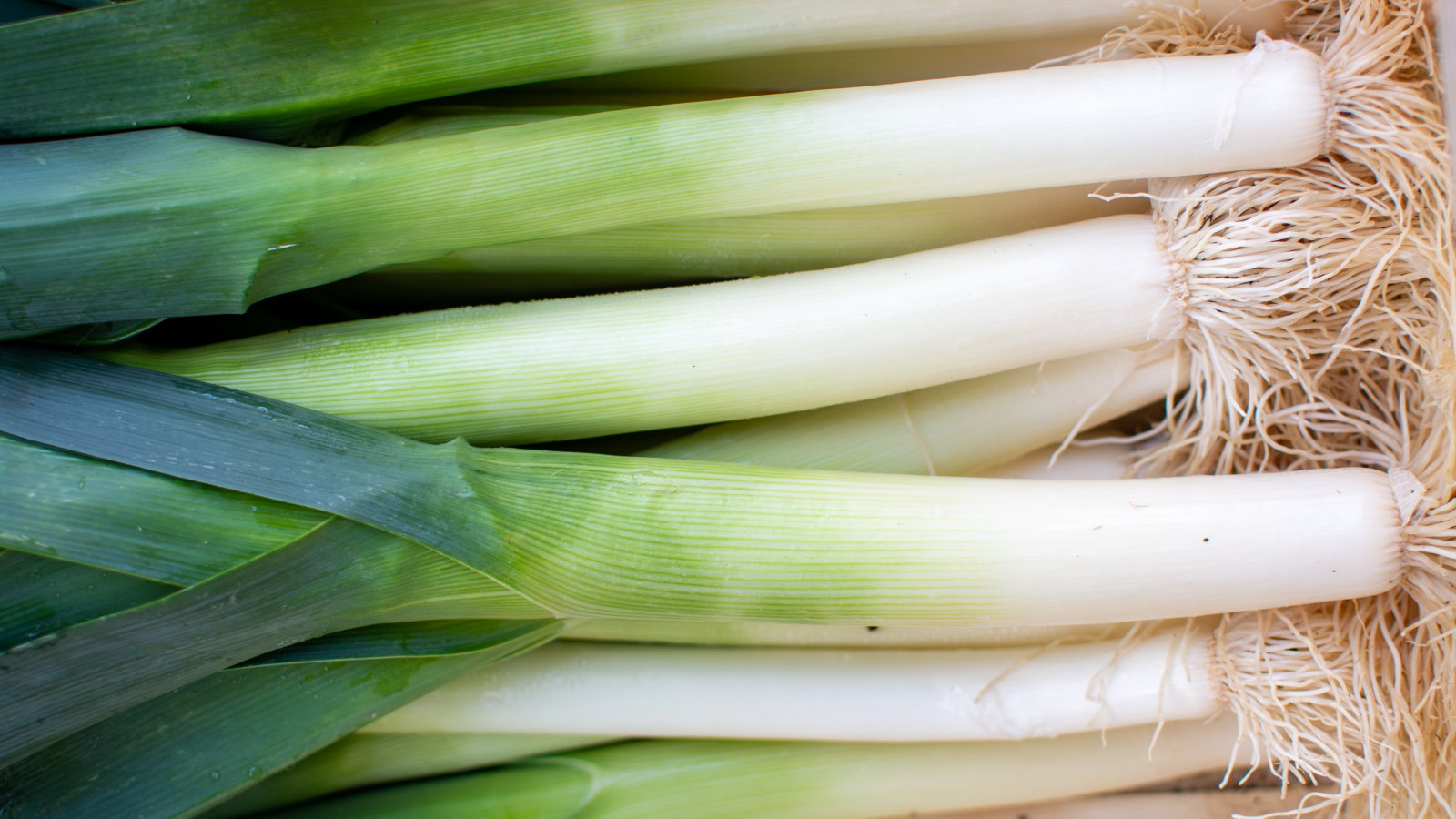
More and more of us have sustainable gardening high on our ideals and regrowing vegetables from scraps is a beneficial and rewarding, environmentally friendly practice that breathes new life into kitchen waste. Leeks are ideal candidates and it is really simple to regrow leeks from scraps.
While often thought a predominantly winter crop, knowing how to grow leeks means you can get delicious stems almost year-round for all manner of dishes. Leeks can be grown from seed, but if you regrow leeks from scraps you get a second harvest from parts of the vegetable many throw into the trash.
So don’t throw away that root end of leeks after chopping and using the green stems. They can be sprouted using only simple household items and then replanted into the garden, or a container, to grow into another leek. We look at how to regrow leeks in only a few simple steps.
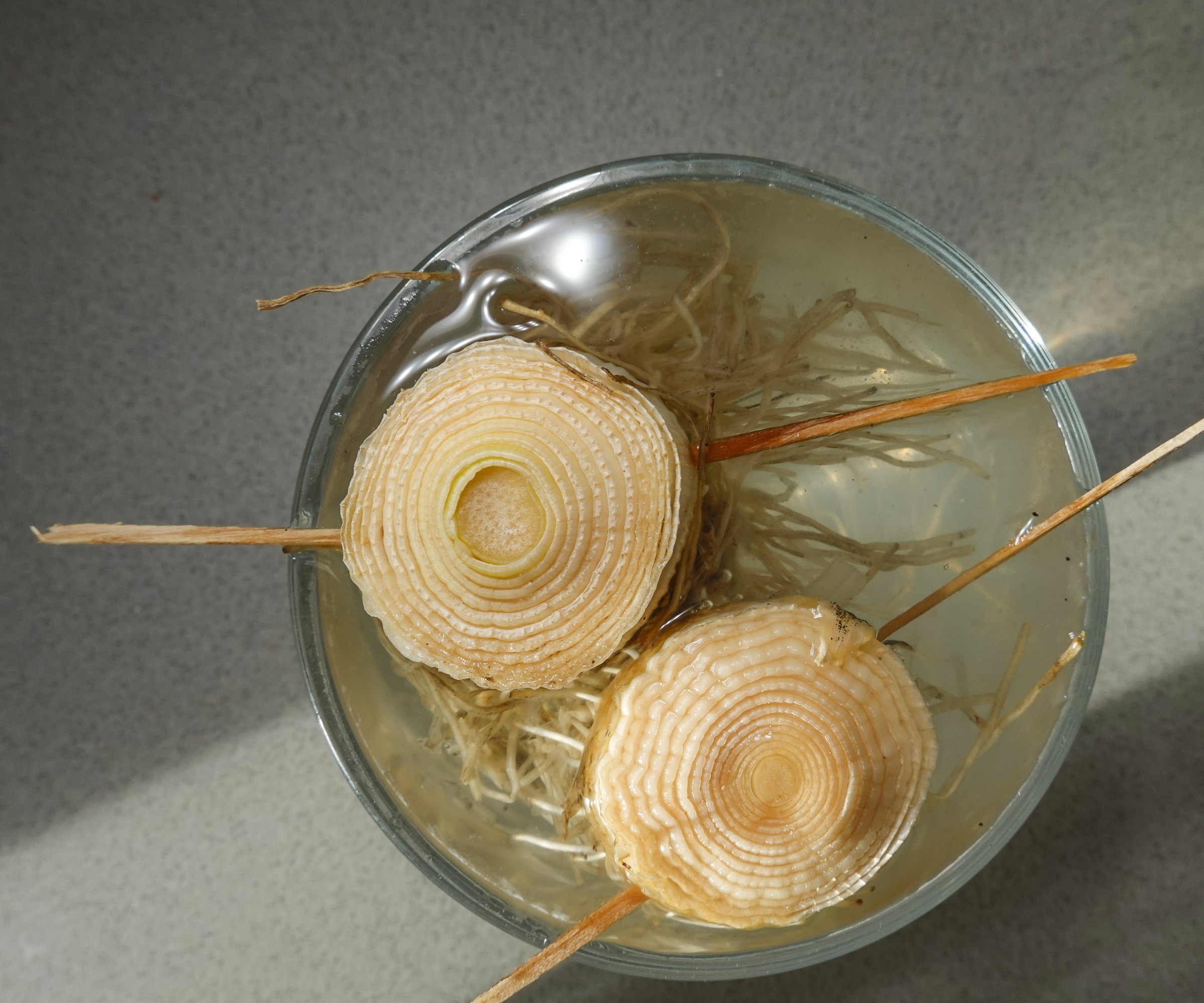
It is quick and easy to regrow leeks in water
How to grow leeks from cuttings
Regrowing leeks from scraps is a great way to get a second harvest from homegrown vegetables. Leeks are one of many vegetables that can be regrown from cuttings in this way, for example, you can regrow beets, grow onions from scraps, or grow carrots from carrot tops. Regrowing vegetables is very simple and a great way of using kitchen scraps.
How to regrow leeks from scraps in 6 simple steps
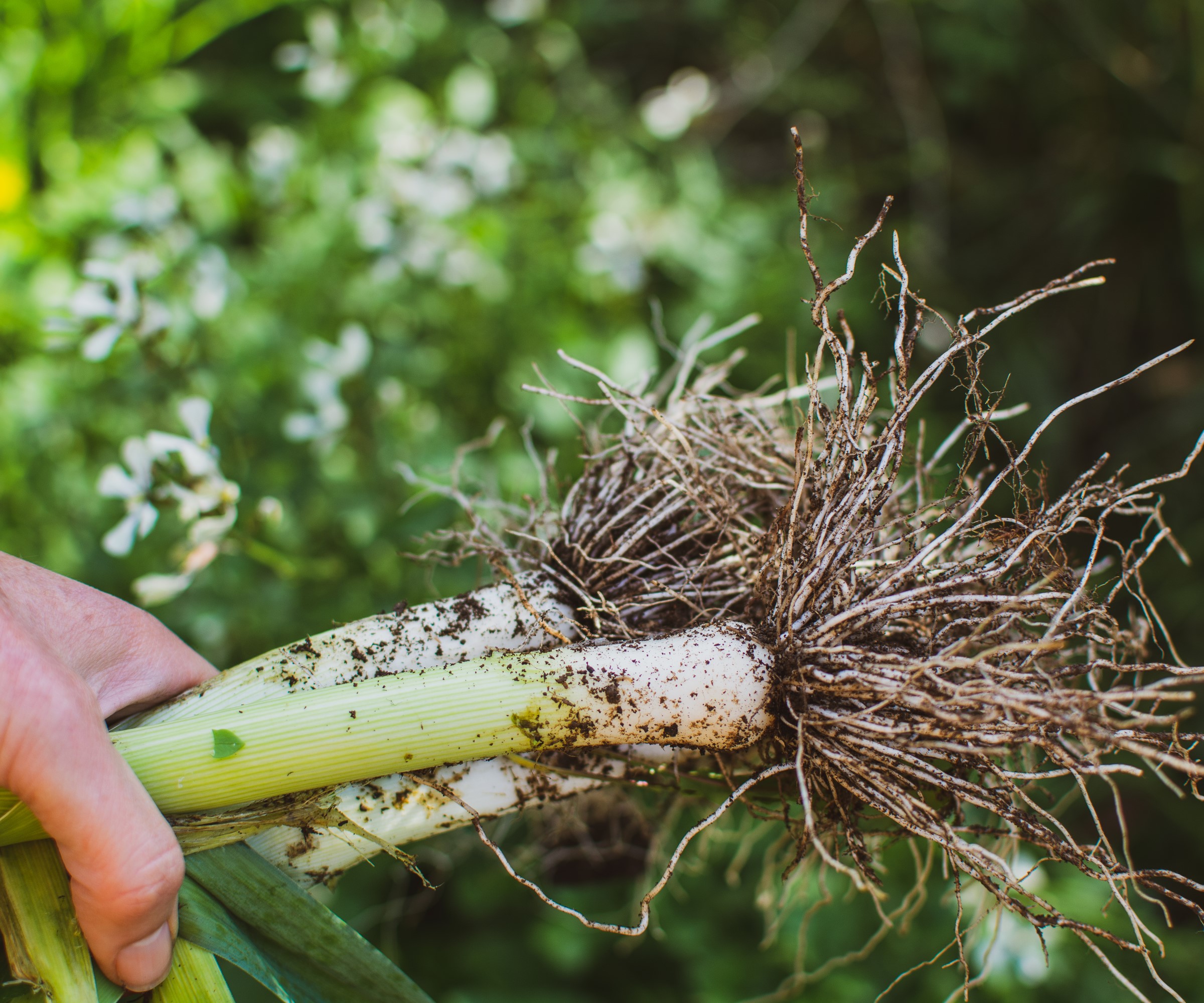
Keeping the roots on the plant is essential to be able to regrow leeks
You can regrow leeks harvested from your own vegetable garden or bought from the grocery store or farmers' market. Whether you harvest leeks at home or use purchased ones, they must have the roots attached if you wish to resprout them.
Amy Enfield, senior horticulturist at ScottsMiracle-Gro, warns that leek regrown from scraps will not get as large as seed-grown ones but ‘still taste just as good’. You can regrow leeks in these easy-to-follow steps, featuring some expert advice from Amy.
- Cut your leek with a sharp knife around 1-1.5 inches above the roots
- Place the cut end roots down in a small container. Amy recommends: ‘A small mason jar works well since the sides will help support the new stalk as it grows.’ Fill the jar with less than an inch of water. The root end should be submerged, but not covered.
- ‘Set the container in a spot that receives bright, indirect sunlight,’ says Amy, recommending a kitchen windowsill as an ideal spot. She adds: ‘Make sure it’s protected from any direct sunlight.’ An ideal spot will get 6-8 hours of bright, indirect sunlight per day
- Change the water every 2-3 days to keep it fresh
- New green shoots and roots should start appearing within a few days and the leek can be transplanted into a container or the garden after 1-2 weeks once it has a few inches of new growth and strong root development
- It is key to plant the leek in fertile and well-draining soil, such as this organic potting mix on Amazon if you transplant it into a pot. Alternatively, incorporate compost or quality soil into the planting area if the leek will grow in the ground or raised bed.
Make a deep hole into the soil and place the small leek in, ensuring the roots and white of the leek are covered but the shooting end is above the soil. Keep the soil moist, as leeks do not root deeply, and wait for the leeks to develop to a usable size.
Design expertise in your inbox – from inspiring decorating ideas and beautiful celebrity homes to practical gardening advice and shopping round-ups.
Adding high-nitrogen fertilizer during the growing season is a great way to fertilize leeks. This can be done with granular products like chicken manure pellets or bone meal, available at Burpee, or liquid fish emulsion feeds when you water plants.
Harvest the leeks by carefully lifting the stem with a fork or spade. The root end can then be regrown again after lifting. Alternatively, Amy Enfield offers a different method to harvest leeks if you want to regrow them: ‘Once you have leek plants growing in your garden, you can harvest by cutting them, rather than pulling the entire plant. As long as the roots and about 1-2 inches of stalk are left behind, the leek will regrow.’

Amy has over 25 years of experience in the garden industry and has been with ScottsMiracle-Gro for 12 years. She has a BS and MS in Horticulture from Michigan State University and a PhD in Plant and Environmental Sciences from Clemson University.
FAQs
How many times can you regrow leeks?
It is not possible to infinitely regrow leeks, as the plants get too tired. You can regrow the crop up to three times from the root end, however, each time you regrow leeks the size of the stem will decrease.
We have mentioned leeks, onions, carrots, and beets - but you may wonder what other vegetables can be regrown. There are more options available, including growing lettuce from scraps, growing celery from a stalk, and regrowing turnips. While leeks, celery, and lettuce can regrow stems and leaves, sprouting roots such as carrots, beets, and turnips gets you a crop of tasty greens as the edible tap roots do not develop when you regrow them.

Drew has worked as a writer since 2008 and was also a professional gardener for many years. As a trained horticulturist, he worked in prestigious historic gardens, including Hanbury Hall and the world-famous Hidcote Manor Garden. He also spent time as a specialist kitchen gardener at Soho Farmhouse and Netherby Hall, where he grew vegetables, fruit, herbs, and cut flowers for restaurants. Drew has written for numerous print and online publications and is an allotment holder and garden blogger. He is shortlisted for the Digital Gardening Writer of the Year at the 2025 Garden Media Guild Awards.
